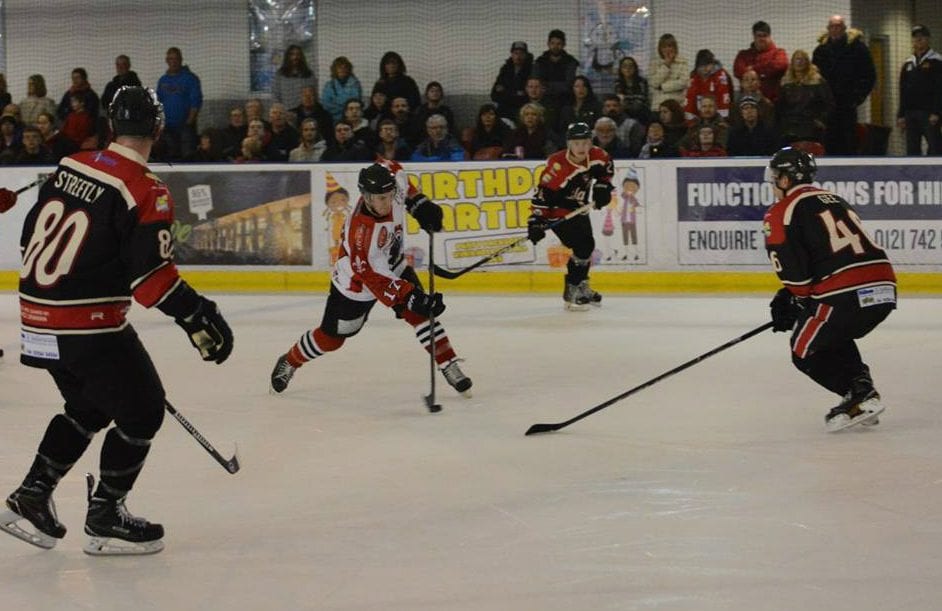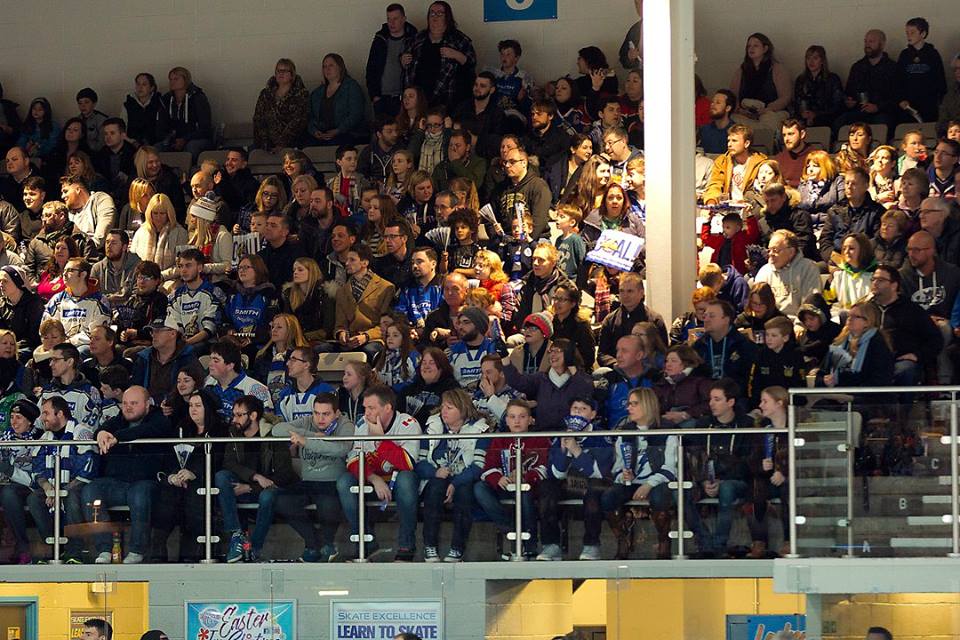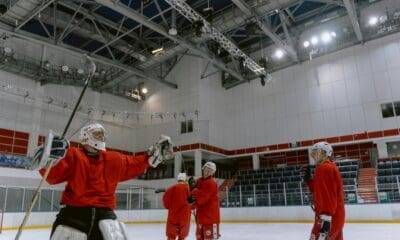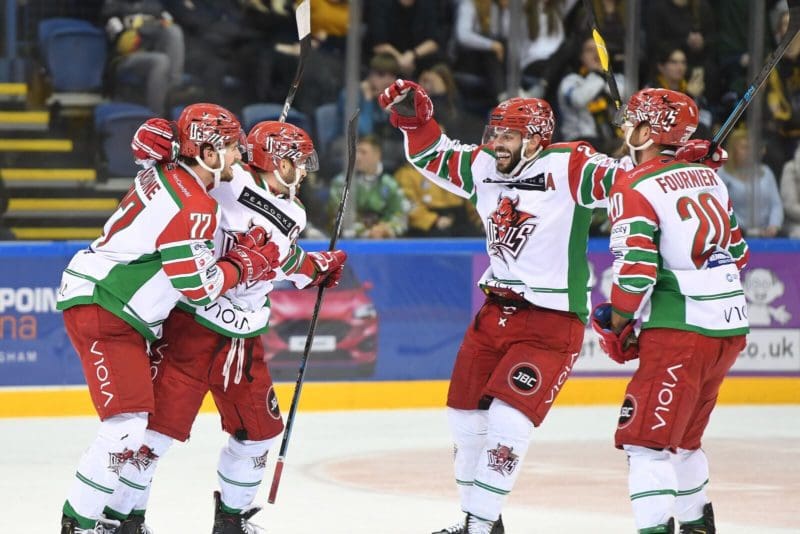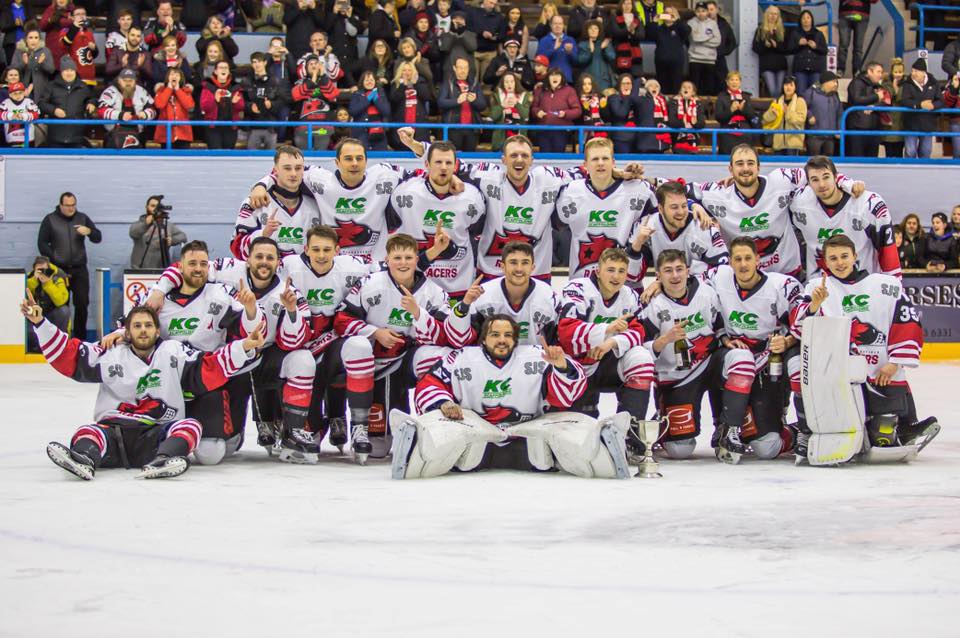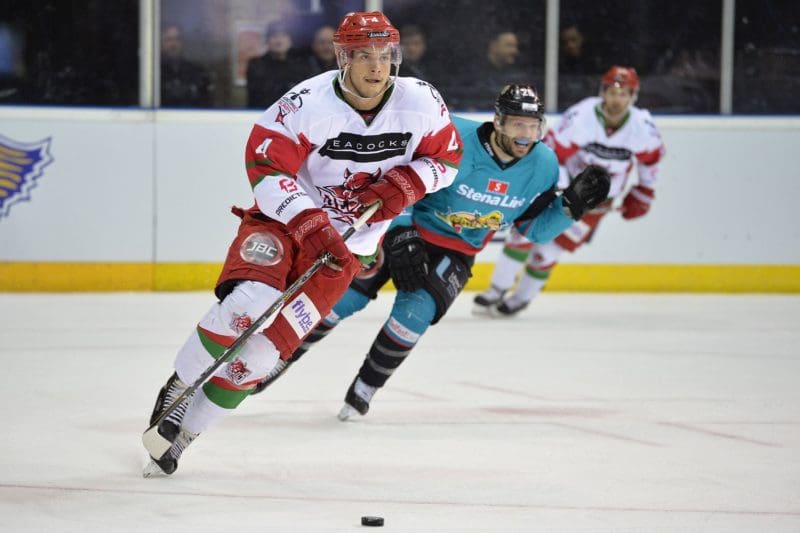Since the announcement that the former EPL clubs had been “advised” they should join the NIHL in time for the 2017/18 season, a great deal has been written across the internet about the situation.
The argument is that the EPL clubs should confirm to the NIHL rules in order to be accepted, and that they shouldn’t just turn this into EPL mkII – actually BNL mkIII – with the financial carnage this would entail.
Speaking to various people involved with the former EPL clubs, this will generally go undisputed. This is largely seen as an opportunity to cut costs, and build a sustainable base from which to launch any future ambitions.
The transition should go quite smoothly on the surface, although due to the quality of British players available to them the new teams will enjoy a degree of success. This was the same when they joined the EPL from the BNL too, but things on the ice will soon settle down.
On the ice at least anyway.
When Wayne Scholes returned to Telford after years away seeking, and attaining, his fortune in the United States, he made a point that he intended to come in and disrupt the league.
To the majority of people, the word disrupt has incredibly negative connotations, and the view of the majority of observers both inside and outside the league was that this was a bad thing. This was a view born of unfortunate ignorance.
The context this was used in by Scholes, was in the business sense. Those of you that work in the corporate sector, and have played numerous sessions of Corporate B******* Buzzword Bingo, will be aware of the way it is used in business.
To disrupt a market place means to bring something new and innovative, something that will encourage your fellow market-place dwellers to up their game to compete.
Many of you reading this are probably too young to remember the way you used to buy car insurance, traipsing down to a high street insurance broker, giving them all of your details, showing them a copy of your MOT certificate and driving licence.
You’d wait while they looked through a folder, made a phone call to an insurer, read all of your details over the phone to the insurer, gave you a price, and you paid it, in full, there and then. You were given your certificate of insurance and off you went.
In the early 1990s, a South African man came to England and thoroughly disrupted the market place. Insurance you could buy over the phone, insurance that you paid for monthly and that you can take out for less than a year if you needed to without prohibitive cancellation fees.
They constantly tore up the old order, disrupted the market place until we have the insurance landscape that we have today.
So how does that relate to ice hockey and the EPL clubs joining the NIHL?
Those joining the NIHL will have larger budgets – depending on who you listen to, only a little larger up to three times larger. However with Schrodinger’s Budget, this is both true and false at the same time.
While there are fears that this will start a spending war, this is probably unfounded.
In order to have these bigger budgets, the clubs need to do three main things. Of these, they will no longer realistically be able to do one, another will be harder, but the third will carry on unabated.
Higher ticket prices – with a drop to a league where ticket prices are typically between £8 and £10, charging up to £15 is no longer viable. This will force the EPL clubs to reduce their budgets and is part of the reason a spending war is unlikely.
Ironically, many EPL attendances, on a weekly average, were lower than those of ‘smaller’ NIHL clubs, such as the Solihull Barons or Chelmsford Chieftains. If the EPL clubs have average crowds of 1,000 people, these drops in ticket prices mean an effective drop of up to £7,000 per week, or over £180,000 per season.
More and larger sponsors – The EPL clubs had the advantage of the notion they were a national league, playing in all parts of England, while the NIHL is a regionalised league playing only in the north or south.
Quietly ignoring that the NIHL covers all of Britain, while teams are restricted in competition to their conference there’s nothing to prevent them seeking to play challenge games with teams from outside their conference.
On a related note, I’ve always wondered why the Deeside Dragons didn’t play for a Welsh Cup against the Cardiff Devils, or later, the Cardiff Fire, however, that’s not the point.
The national scope, while limited to certain parts of the country, will be replaced with a more regional view, which will make it harder to sell that sponsorship. While the quality of the hockey might be a little lower, there will likely be very little drop in the entertainment generated by the game.
Maximise customer secondary spend – This is an area that the NIHL clubs can absolute jump onto and take on, and it’s in this area that the EPL teams will disrupt the market-place – but disrupt in a very positive and beneficial way.
Let’s use Peterborough Phantoms as an example as I’m fairly familiar with part of their operations. Swindon and Bracknell do many of the same things, and before anyone thinks I’m giving away any form of commercial secrets you can also find most of this, and much more, in a book – ‘Think Like a Fan, by Lee MJ Elias and Stacy Rosales Granara.
One of the first things they worked on was increasing the average attendance. This was done using the best, and cheapest advertising resource available anywhere – their fans.
An incentive was created whereby any current fan that brought a new, or long time absent returning fan to the game, got a point. Thresholds were set and, for a certain number of points, you got a prize. For example, bring five new fans, get a signed puck. This wasn’t per week, it was over the remainder of the season.
Challenging an existing fan to bring one new person every five weeks is actually not that hard at all, and the prize, which brings in an extra £40 or so, costs £2.
The economy of scale worked up to the largest prize for bringing 100 new people, a season ticket for the following year, which was won by someone who brought in a party from his local school.
The net gain from this in terms of return numbers, which wasn’t huge, was still an incremental increase in gate money, this all led to a higher playing budget for the team. This especially is something that will become more important when making up for the shortfall caused by the reduced ticket numbers.
The associated gain, which people often ignore as being invisible, is the secondary spend. The money raised by things like the Shirt off Your Back raffle, the 50/50 draw, programme sales.
The latter is case of speculate to accumulate, how many do you print? What do you sell them for? How many is the right number and how many is too many? This takes judgement – if they cost say £1 to print, and you sell them for £2, it’s a profit for the club, so long as you sell more than more than half of them.
It’s advisable to start with a small run and sell out, rather than be left with a lot to take home. However, this is somewhere where sponsorship comes in – sponsorship money can be used to offset these costs.
Then ‘all’ you have to do, is find content. Actually, this is the hard part, but given the number of people who seem to think they have something worthwhile to say that they put out into a blog, it’s not as hard as you might think.
The Shirt Off Your Back raffle is simple enough to make a sustained profit on – team owners and managers know how much shirts cost to get produced and can schedule which player’s shirt is given away and when.
The 50/50 is your quiet but spectacular play. These can get quite hefty prizes. MK Lightning would regularly advertise or announce prizes over £500 per night, while at Peterborough, these started at around £100-150, and then rose to upwards of £350 per night in prizes.
In a 26 home game season, that worked out at over £10,000 extra into club coffers for MKL. It’s a weird cycle though – the higher the prize, the more tickets people buy, so the higher the prize gets, so it’s worth the risk of offering to guarantee the minimum prize amount. Selling tickets up until the end of the second period break is also recommended.
Probably the area where the greatest disruption will occur is in media and fan communications. Some NIHL clubs have recently moved into the area of video production, showing highlight reels.
This is something the EPL clubs have pushed far further if you have people willing to put the hours in to produce these features on a regular basis.
Some have taken this on another step and have established a streaming service, broadcasting the game live via the internet aimed at visiting fans that would not normally travel, but who want to follow their team wherever possible.
This was done on a profit-sharing basis with the streaming company and, while not bringing in enough to retire on, it made a very positive contribution to team finances.
The media area is one where sponsors can be given extra value at no appreciable cost – this is one lesson seen to great effect in Peterborough. If you have a media team, embrace them, bring them in closer to your organisation and you, as a team owner will reap the rewards.
The better your media team and the more trust they earn/you give them, the better content they will produce. The better the content, the better your team’s image. The knock on from that is that the better the image you have, the more attractive you are to sponsors. Media, social media especially should be embraced in full.
The ethos of Think Like a Fan can certainly be applied on social media. Instead of talking at your fans, engage them, encourage them to contribute. This brings fans into feeling that they are part of a team too.
This makes them even more passionate about their team, which is great on match nights. It helps to keep new fans returning, rather than treating the night as a one-off experience, but also encourages them to attend other events, support team drives and buy the special jerseys – all of which help the bottom line.
This is an area the former EPL clubs will leverage as best they can, but it’s not something that they, and only they, can achieve.
At Peterborough this was done with an, at that time, inexperienced media team, someone with the experience to recognise this, and a team owner prepared to take a chance and try something new.
It led to another EPL club, whose owner at the time ran their own media arm, describing the Phantoms as punching well above their weight. This is due to the hard work of Carrie, Lee, Phil and especially Matt Cavalieri, and it was the result of belief from Jo and Dave Lane.
So back to the point. None of the things that the EPL teams did off ice were unique, and for the vast majority, it didn’t involve the team owners throwing an unsustainable amount of money around.
This is one of the reasons they will survive well in the NIHL without provoking a spending war. Their arrival will certainly disrupt the league, but undoubtedly for the better.

